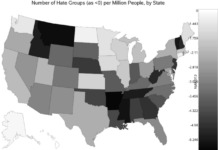
If elected President in 2016, Hillary Clinton would seek to expand the federal government’s ability to investigate police departments across the United States, a high-ranking aide in the Clinton camp told The Huffington Post.
Clinton’s plan would include doubling the funding for the Justice Department’s collaborative reform program which works with police departments to implement change, expanding the Civil Rights Division that investigates law enforcement agencies, and also increasing funds used to train officers on the federal, state, and local level.
Additionally, Clinton’s plan would give subpoena power to Justice Department lawyers investigating law enforcement agencies that may be engaged in unconstitutional behavior, such as those found by the DOJ found during its investigation of the Ferguson Police Department.
Tony West, a former top Justice Department official, noted that there simply is not enough personnel at the DOJ to properly investigate complaints against police officers:
“This is something that we grappled with because there frequently the need to provide assistance and guidance to law enforcement agencies across the country that often stretched beyond our ability to meet the requests. Often there were more requests than we had the ability to really reach out and satisfy.”
The aide also said that under a Clinton Administration, the former Secretary of State would also seek to make sure that every member of law enforcement gets ongoing training on:
“Issues such as effective policing approaches (including procedural justice, community policing and problem solving, appropriate use of force, de-escalation, mass demonstrations response); fair and impartial policing (including addressing implicit bias, engagement with the LGBT community, in particular transgender individuals); pursuing alternatives to incarceration and public health or other interventions where appropriate (including tools to respond to incidents involving mental health or substance abuse crisis); officer safety and wellness (including best practices in stress management, recognizing and treating post-traumatic stress disorder, reducing officer injuries.)”
Featured image by Flickr, available under a Creative Commons Attribution-Noncommercial license.




